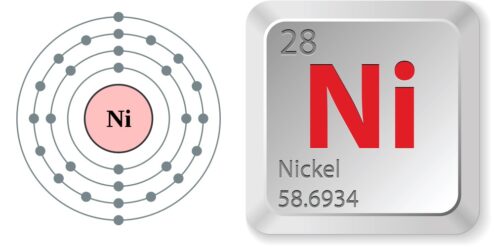Introduzione:
Nickel is a naturally occurring element that is found in various foods. While it is essential in small amounts for the body’s normal metabolic processes, excessive intake can lead to health problems. This article will explore the nickel content in sweet potatoes, a popular and nutritious food item, and provide advice on managing nickel intake.
Introduction to Nickel Content in Foods
Nickel is a trace mineral that is present in the soil and absorbed by plants. It is therefore found in varying amounts in almost all foods. The nickel content in food can also be influenced by the cooking process and the type of cookware used. Foods that are high in nickel include whole grains, nuts, dried fruits, and chocolate. However, the nickel content of specific foods can vary widely depending on factors such as soil conditions and farming practices.
Understanding the Nutritional Profile of Sweet Potatoes
Sweet potatoes are a highly nutritious food. They are rich in fiber, vitamins, and minerals, and are particularly high in beta-carotene, a precursor of vitamin A. Sweet potatoes also contain a good amount of vitamin C, manganese, and potassium. In addition, they are low in fat and have a moderate glycemic index, which makes them a good choice for people with diabetes.
Are Sweet Potatoes High in Nickel: The Facts
While sweet potatoes are high in many nutrients, they are not particularly high in nickel. According to the USDA National Nutrient Database, a 100-gram serving of sweet potatoes contains approximately 0.15 milligrams of nickel. This is significantly lower than the nickel content in many other foods. However, as mentioned earlier, the nickel content of foods can vary depending on various factors.
The Impact of High Nickel Foods on Health
While nickel is necessary for the body in small amounts, excessive intake can lead to nickel allergy or systemic nickel allergy syndrome (SNAS). This condition can cause symptoms such as skin rash, itching, and gastrointestinal problems. In severe cases, it can also lead to chronic conditions such as heart disease and kidney damage. Therefore, it is important to balance the intake of nickel through diet.
Managing Nickel Intake: Tips and Advice
To manage nickel intake, it is advisable to consume a varied diet and avoid excessive consumption of high-nickel foods. Cooking in stainless steel or nickel-plated cookware can also increase the nickel content of food, so it may be beneficial to use cookware made of other materials. If you have a nickel allergy or SNAS, you may need to follow a low-nickel diet under the guidance of a healthcare professional.
Conclusioni:
Balancing nutrition and nickel intake is crucial for maintaining good health. While sweet potatoes are a nutritious food that is low in nickel, it is important to consume a varied diet and be mindful of the nickel content in other foods. If you have concerns about nickel in your diet, it is advisable to consult a healthcare professional.
Per approfondire:
-
USDA National Nutrient Database: This database provides detailed information on the nutrient content of thousands of foods, including nickel.
-
The World’s Healthiest Foods: This website provides information on the nutritional profile of many foods, including sweet potatoes.
-
American Academy of Allergy, Asthma & Immunology: This professional organization provides information on nickel allergy and systemic nickel allergy syndrome.
-
National Institutes of Health: This government agency provides reliable health information, including information on the role of nickel in the body.
-
Harvard Health Publishing: This website provides health advice from experts at Harvard Medical School, including advice on managing nickel intake.


